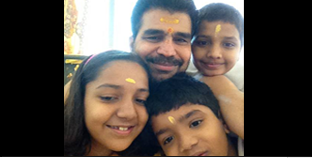1:36nihhatya dhārtarāṣṭrān naḥ kā prītiḥ syāj janārdanapāpam evāśrayed asmān hatvaitān ātatāyinaḥ1:37tasmān nārhā vayaṁ hantuṁ dhārtarāṣṭrān svabāndhavānsvajanaṁ hi kathaṁ hatvā sukhinaḥ syāma mādhava In Śloka 36 and 37, Arjuna
READ MORE
Dystopian literature captivates readers with its imaginative worlds and thought-provoking themes. For example, “Fahrenheit 451” by Ray Bradbury critiques censorship and the dangers of a passive society, while simultaneously addressing the importance of literature.
Fact: Many dystopian stories incorporate elements of hope and resilience. top dystopian novels
While the settings can be dark, authors often highlight the strength of the human spirit in the face of adversity. Books like Parable of the Sower by Octavia Butler delve into socio-economic disparities and environmental catastrophes, illustrating how societal dynamics shape dystopian realities. Titles like “The Road” by Cormac McCarthy blend dystopian themes with literary storytelling, appealing to a broader audience.
Fact: Dystopian literature can be a reflection of real-world scenarios.
Many classic dystopian novels are inspired by real historical events or societal trends, providing a cautionary tale about the potential consequences of unchecked power and societal complacency. Works like George Orwell’s “1984” and Aldous Huxley’s “Brave New World” are staples of adult literature, demonstrating that dystopian themes resonate with readers of all ages.
Fact: The genre encompasses a diverse array of themes and styles.
It’s a common misconception that all dystopian books share similar plots and settings.
For example, “Fahrenheit 451” by Ray Bradbury employs irony to highlight the absurdity of censorship and the loss of individuality, demonstrating that dystopias can also provoke thought and laughter.
Fact: Not all dystopian narratives criticize government systems. good dystopian novels
Many authors draw inspiration from historical events, political climates, and social issues. By examining potential futures, readers are encouraged to reflect on their values and the direction of society, making dystopian literature a powerful tool for social commentary.
Understanding the myths surrounding dystopian literature is essential for appreciating the depth and relevance of these stories. These narratives can inspire readers to reflect on their societal roles and advocate for change.
Understanding the myths surrounding dystopian literature is crucial for appreciating its depth and relevance. For instance, “Parable of the Sower” by Octavia Butler addresses climate change, inequality, and social breakdown, reflecting pressing issues in our contemporary society. For example, books like The Handmaid’s Tale by Margaret Atwood examine gender roles and reproductive rights, highlighting the multifaceted nature of dystopian literature.
Fact: Many dystopian novels offer hope and resilience. dystopian literature books
A common misconception is that all dystopian stories are bleak and devoid of hope.
No Schedules for this section.
Spiritual tour
Date & Time : 24-02-2026 - 07-03-2026
Venue : Pancha Dwaraka Yatra
Contact Person : Admin
Contact Number : 9497033111



